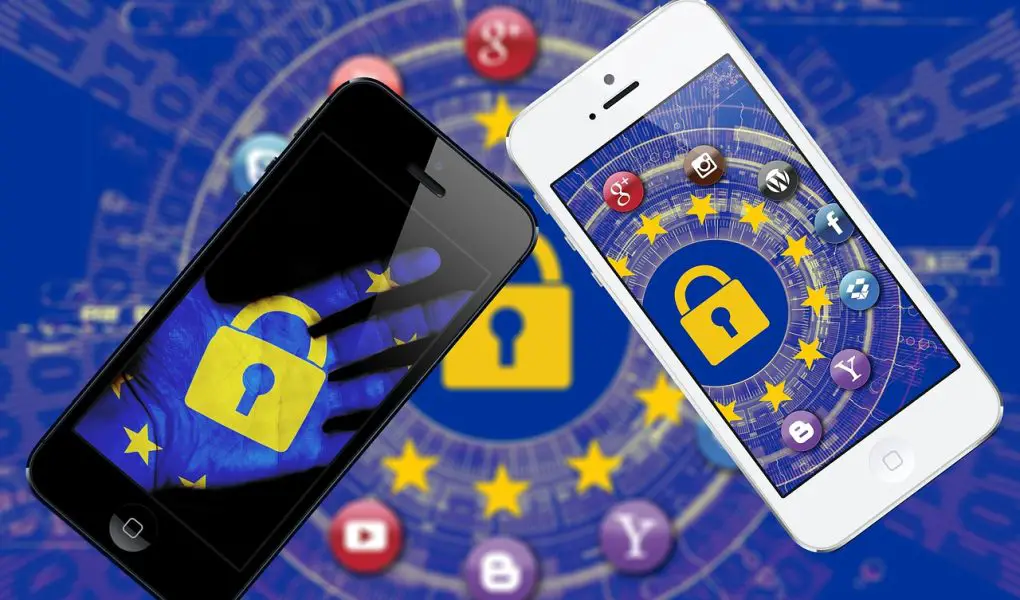Marketing automation has revolutionized the way businesses engage with their customers, allowing them to streamline their marketing efforts and improve overall efficiency.
One of the popular tools in this domain is ChatGPT, a powerful language model developed by OpenAI. However, when it comes to utilizing marketing automation tools like ChatGPT while maintaining compliance with regulations such as the General Data Protection Regulation (GDPR), there are several important considerations to keep in mind.
In this tutorial, we’ll explore the key aspects of ChatGPT, marketing automation, and the GDPR to help you navigate this landscape effectively.
Understanding ChatGPT.
ChatGPT is an advanced language model that leverages artificial intelligence (AI) to generate human-like responses based on the input it receives. It can be integrated into various applications, including marketing automation systems, to provide automated responses and enhance customer interactions.
ChatGPT’s capabilities include natural language processing, understanding context, and generating coherent and relevant responses. By utilizing ChatGPT, businesses can automate customer support, lead generation, and even content creation.
Marketing Automation and its Benefits.
Marketing automation refers to the use of technology to automate repetitive marketing tasks and workflows. It allows businesses to streamline their marketing efforts, improve efficiency, and deliver personalized experiences to their customers.
Some common use cases of marketing automation include email marketing, lead nurturing, social media management, and customer relationship management (CRM).
The benefits of marketing automation are numerous. It helps businesses save time and resources by automating manual tasks, enabling marketing teams to focus on strategic initiatives.
Moreover, marketing automation allows for personalized and targeted communication with customers, leading to improved customer engagement and higher conversion rates.
It also provides valuable data and insights that can be used to optimize marketing campaigns and drive better results.
The General Data Protection Regulation (GDPR).
The GDPR is a comprehensive data protection regulation enacted by the European Union (EU) to safeguard the privacy and personal data of individuals. It imposes strict obligations on businesses that collect, store, and process personal data of EU citizens, regardless of the location of the business itself.
The GDPR grants individuals greater control over their data and requires businesses to implement appropriate measures to ensure data protection and privacy.
To comply with the GDPR while using marketing automation tools like ChatGPT, businesses need to consider the following key aspects:
Lawful Basis for Data Processing.
Under the GDPR, businesses must have a lawful basis for processing personal data. When utilizing ChatGPT for marketing automation, you need to ensure that you have a valid lawful basis for processing the personal data of your customers.
The most common lawful bases for processing personal data include consent, contract performance, legal obligations, and legitimate interests. Review your data processing activities and determine the most appropriate lawful basis for using ChatGPT within your marketing automation processes.
Data Minimization and Purpose Limitation.
The GDPR emphasizes data minimization and purpose limitation, which means businesses should only collect and process personal data that is necessary for the intended purpose.
When using ChatGPT in marketing automation, be mindful of the data you collect and provide to the language model.
Avoid collecting excessive or unnecessary personal data and ensure that the data you collect aligns with the specific purpose for which it is being processed.
Data Security and Confidentiality.
Data security is a fundamental requirement of the GDPR. As a business using ChatGPT for marketing automation, it is crucial to implement robust security measures to protect the personal data you collect and process.
Make sure that you have appropriate technical and organizational measures in place to safeguard data confidentiality, integrity, and availability. This may include encryption, access controls, regular security assessments, and employee training on data protection practices.
Data Subject Rights.
The GDPR grants individuals certain rights regarding their personal data.
As a business using ChatGPT in your marketing automation processes, you need to be aware of these rights and have mechanisms in place to address them.
The key data subject rights include:
- Right to Access: Individuals have the right to obtain confirmation as to whether their personal data is being processed and access to that data. Ensure that you have procedures in place to respond to data subject access requests and provide the necessary information in a timely manner.
- Right to Rectification: If the personal data you have collected is inaccurate or incomplete, individuals have the right to request its correction or completion. Implement processes to handle rectification requests and update the relevant data accordingly.
- Right to Erasure: Also known as the “right to be forgotten,” individuals have the right to request the deletion of their personal data under certain circumstances. Define policies and procedures for handling data erasure requests and ensure that you have mechanisms to delete personal data associated with ChatGPT interactions when required.
- Right to Object: Individuals have the right to object to the processing of their personal data, including automated processing such as profiling. Be prepared to address objections and assess the impact of such objections on your marketing automation activities.
- Right to Restriction of Processing: In certain situations, individuals may request the restriction of processing their personal data. Establish procedures to handle such requests and ensure that you can limit the processing of personal data as required.
- Right to Data Portability: Individuals have the right to receive their personal data in a structured, commonly used, and machine-readable format and have the right to transmit that data to another controller. Consider how you can facilitate data portability for individuals who interact with ChatGPT in your marketing automation processes.
Data Transfers.
If you are transferring personal data outside the European Economic Area (EEA), you need to ensure that appropriate safeguards are in place.
ChatGPT, as a cloud-based service, may involve the transfer of personal data to OpenAI servers located outside the EEA.
Make sure that you have a lawful basis for the transfer and consider mechanisms such as Standard Contractual Clauses or other approved safeguards to facilitate compliant data transfers.
Vendor Management.
If you are using ChatGPT as a service provided by OpenAI or any other vendor, it is important to review their data processing practices and ensure they are GDPR-compliant.
As the data controller, you are responsible for ensuring that your vendors process personal data in accordance with the GDPR requirements. Review the vendor’s data protection policies, contractual terms, and security measures to ensure compliance.
Privacy Notices and Consent.
Transparency and informed consent are essential under the GDPR. When implementing ChatGPT in your marketing automation processes, update your privacy notices and clearly communicate to individuals how their personal data will be processed.
If you rely on consent as a lawful basis for processing personal data, make sure that you get valid and explicit consent from individuals.
Review and update your consent mechanisms to align with the GDPR requirements.
Data Protection Impact Assessments (DPIAs).
In certain cases where the processing of personal data is likely to result in high risks to individuals’ rights and freedoms, you may need to conduct a Data Protection Impact Assessment (DPIA).
When implementing ChatGPT in your marketing automation, consider whether a DPIA is necessary and conduct one if required. A DPIA helps identify and mitigate privacy risks associated with the processing of personal data.
Conclusion.
Utilizing ChatGPT in marketing automation can greatly enhance customer interactions and streamline your marketing efforts.
However, it’s important to ensure compliance with the GDPR to protect individuals’ privacy and data rights.
By understanding the key aspects of ChatGPT, marketing automation, and the GDPR, you can implement necessary measures to maintain compliance.
Here are some final tips to keep in mind:
- Stay updated: The regulatory landscape and best practices for GDPR compliance may evolve over time. Stay informed about any updates or changes to the GDPR and adjust your practices accordingly.
- Document your processes: Maintain clear documentation of your data processing activities, including the use of ChatGPT in marketing automation. This documentation will help demonstrate your compliance efforts if required.
- Train your employees: Ensure that your employees who handle personal data or interact with ChatGPT are trained on data protection practices and the GDPR requirements. They should understand their roles and responsibilities in safeguarding personal data.
- Conduct regular assessments: Regularly assess your data processing activities, security measures, and compliance efforts. Identify any gaps or areas for improvement and take appropriate actions to address them.
Remember, this tutorial is a general guide and does not constitute legal advice. It’s crucial to consult with legal professionals or data protection experts to ensure compliance with the GDPR and any other applicable regulations.
Marketing automation can provide significant benefits to your business, and with careful consideration of the GDPR, you can leverage ChatGPT effectively while protecting individuals’ data rights.
By striking the right balance between automation and data privacy, you can build trust with your customers and achieve marketing success.
Happy automating and staying compliant!
*******
Disclaimer: This tutorial is provided for informational purposes only. It does not constitute legal advice, and the author and publisher are not liable for any actions taken based on the information provided. It is recommended to consult with legal professionals for specific guidance on compliance with the GDPR and other applicable regulations.





